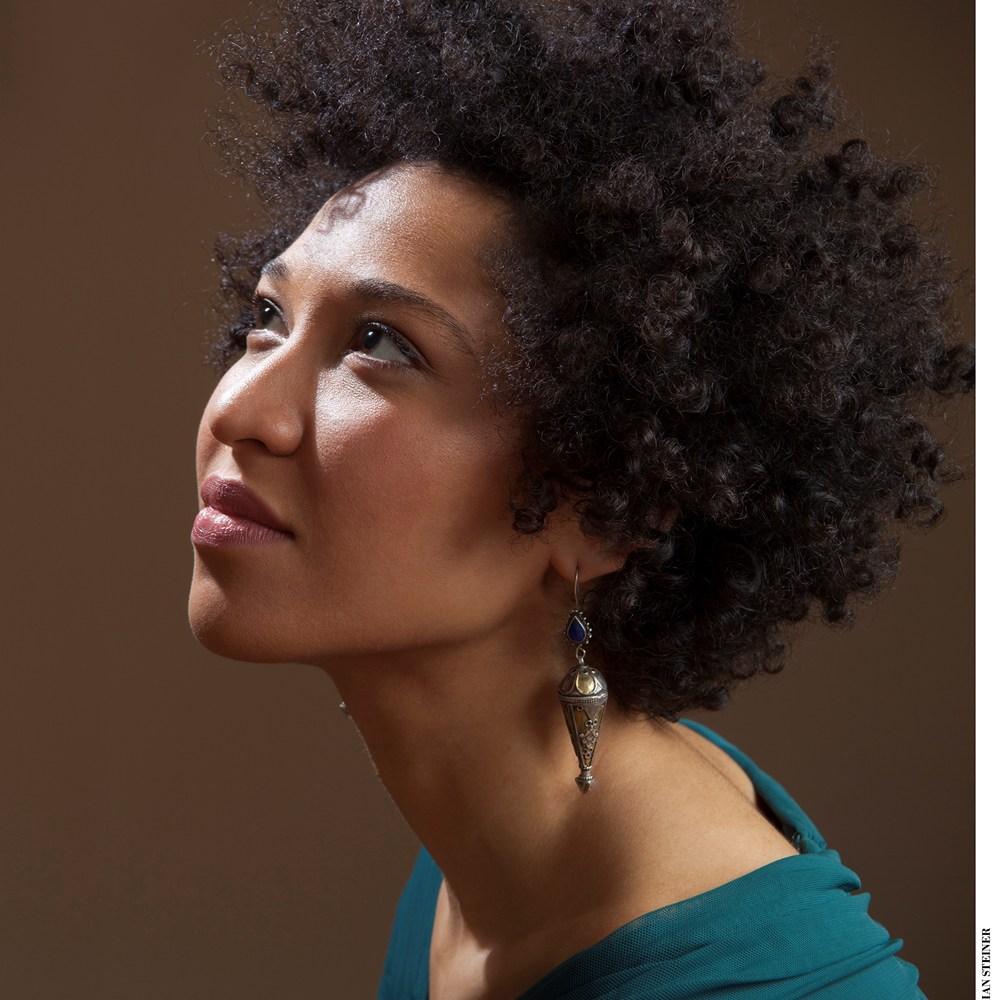My First Opera: Julia Bullock
Growing up in Saint Louis, I was really only interested in musical theater. During my summers, I performed in the youth chorus at The Muny, the largest outdoor theater in America, and was proud to be a Muny Kid. They suggested we all get voice lessons, so starting at age nine, I took a 30-minute lesson each week. I didn’t practice, and at that age, I just wasn’t physiologically able to coordinate my body, so I soon became disenchanted with the whole process. I started a cycle of becoming enthusiastic about singing, taking voice lessons and then writing a break-up letter to whichever teacher I had at the time. This continued until I was about 16, at which point I was just getting excited by the act of singing itself. After a year of lessons, I applied for Opera Theatre of Saint Louis’ Artists-in-Training program for high school students.

Before my audition, my teacher asked that I see vocal coach Scott Schoonover. He was really demanding with me. In my first session, I sang a Donizetti song, “Il barcaiolo.” He said that I sang it just fine, but then asked, “Do you understand why these arpeggios are here? Do you really understand what you are singing about?” No one had really talked about music with me before. I had previously sung a couple of art songs and arias, but they had felt like exercises. Over the course of that one hour, I became more and more aware of the music’s complexity and the ways I could relate to it. This will sound dramatic, but from that lesson onward, I would never approach a single piece of music I was singing, or even listening to, in the same way again. There was something much greater to achieve besides sharing my voice: My goal was now to be conscious of what I was communicating and why.
My stepfather, a classical musical enthusiast, later gave me a stack of his favorite opera and vocal CDs and DVDs. The first one I listened to was an album of French art songs sung by Régine Crespin. I was taken by her voice –– of course! –– but I also thought, “OK, what is she really singing about?” I looked for the first time at the texts and their translations. All these synapses started firing in my brain; this music, which was so foreign to me, helped me to listen to words in a new way.
A few years later, after I was accepted into Eastman School of Music, my mother took me to New York, as a high-school graduation gift, to see Karita Mattila in Salome at the Met. I’ll never forget the power of the last five minutes of that piece. Afterward, I was waiting for my mother at the exit, and as I looked at the people, I could see they were feeling something intense, maybe even the same emotions as I was. It taught me that opera could be an overwhelming communal experience.
One of my stepfather’s DVDs that left a lasting impression was Peter Sellars’ 1996 Glyndebourne production of Handel’s Theodora. It made me understand the power of staged classical music. And it was the first time I saw and heard Lorraine Hunt Lieberson. I started crying almost immediately from the depth and humanity in her voice and her physicality. Watching her eyes was like looking into a flame. Everything she did felt inevitable. Obviously, it was a crafted performance, but it never felt “acted.” It was also informative seeing her younger, in Peter’s production of Giulio Cesare. She had the same fervor and desire, but it wasn’t as organized. She didn’t yet have the confidence that she would develop later on. I realized that I would go through a similar transformation, chipping away at unnecessary tensions.
Watching Lorraine in Theodora, you can see the delicacy of her gestures. Even when the vocalism is intense, it is never something that she forced out. That’s good vocal technique, of course, but it’s also the sense that the voice and the mind and the body are linked together in one communicative effort. That has been a great philosophy to remember, and I first learned to recognize it by watching Lorraine.
Soprano Julia Bullock is the 2019–2020 artist-in-residence of San Francisco Symphony and a founding member of the American Modern Opera Company.
This article was published in the Spring 2020 issue of Opera America Magazine.




